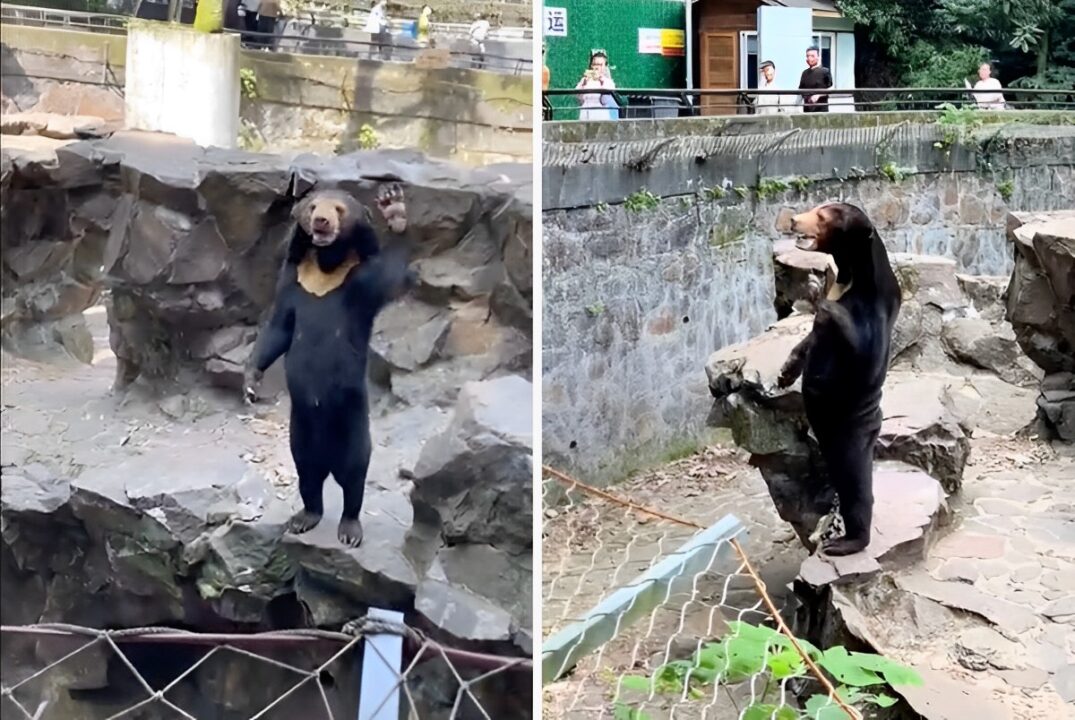A video of a bear in a zoo in China standing up and waving at visitors has sparked fierce debate online about whether the bear is actually a staff member in a costume.
One video shows the bear at Hangzhou Zoo standing completely upright, looking at the crowds and raising its left paw, as if waving to zoo visitors. It then goes down on all fours to eat some food thrown into its enclosure by a visitor.
Another video shows the bear from a different angle, standing up and raising its left arm above its head as it surveys the visiting crowds.
Netizens have analysed the videos, saying that the folds on the bear’s back and posterior make it seem like it is actually a human in an ill-fitting bear suit.
However, park officials say the four-year-old Malayan sun bear named Angela is “definitely not a human” on its official WeChat account.
“Our zoo is government-run, so that kind of situation would not happen,” a member of staff said, according to local media reports. “The temperature in the summer is nearly 40 degrees (Celsius), if you put on a fur suit, you certainly couldn’t last more than a few minutes without lying down.”
Zoo officials also issued a statement written from Angela’s perspective, which said that people “didn’t understand” the species.
“I’m Angela the sun bear – I got a call after work yesterday from the head of the zoo asking if I was being lazy and skipped work today and found a human to take my place. Let me reiterate again to everyone that I am a sun bear – not a black bear, not a dog – a sun bear!” the statement read.
However, curious visitors have flocked to the zoo to see the bear for themselves and come to their own conclusions. Footfall at Hangzhou Zoo went up by 30% to around 20,000 a day since the initial video of Angela went viral on Chinese social media, according to reports.
Sun bears are known to inhabit the forests of Southeast Asia and are the smallest bears, with an average height of nearly 70 centimetres. They do occasionally stand on their hind legs to get a better view of their surroundings or to smell distant objects.
Header image credits: Yicai Global and China Perspective via Twitter




